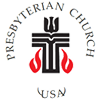Last Sunday we gathered round the table. We smiled, found seats, commented on the weather…folks were a little early, we opened in prayer. And then we started checking in….answering the question of what did the darkness named in Mark 15:33-39 look and feel like & what does “forsaken” feel like.
There were comments of a humble honesty … the imagination that we can feel rejected (and it sucks) but that we don’t know what being forsaken feels like. There were thoughts about the enormity of the full weight of sin — all sin — from all people — for all eternity — being upon Christ & that causing such a barrier between him & God that he felt shunned/alone/forsaken. Ideas of feeling fully the death of sin. And we have different ways of (trying) to understand this — struggling (all of us) with the concept that Christ (and yes, Christ is God) being up there on the cross and feeling forsaken. There were thoughts that the darkness felt truly dark, an eerie dark that we can’t fully grasp because we live in a space where we know that Good Friday didn’t last forever….There too was the admission of being very blessed of not feeling forsaken, by many standards and so an inability to grasp what Christ names on the cross in its weight — it’s feeling of holding evil & of holding death near. And even in reflecting on our time, I notice a(nother) contradiction of experience — how it is in Christ’s forsakenness that we all have been given the gift of eternal connection with God (remember how the curtain of the temple was rend in two?) — the point(s) of his agony open the ideal and paradise of reconciled relationship with God (for us all).
And, perhaps appropriately — with a conversation of darkness and forsakenness — depression was named as one way that some (many) understand darkness that is darker than anything imagined, a place where so many know deep pain and the feeling of rejection and/or forsakenness. This is a darkness we do not control, and one which can seem to last forever. Those sharing named this, some more familiar than others, and we even mentioned suicide too. There are dark places — and darkness — that for some seems to be the wilderness and the reality of their life — while offering no answers other than Christ who knows the depths of darkness & offers light to all the world….and this is hard. Darkness is hard. I think this is part of why it is important for us as those who love God — as those who trust Christ — as those who are filled with the Holy Spirit — to not skip over Good Friday in a rush to get to Easter/Resurrection Sunday. The two events need each other — one without the other really does not offer us much. What is the point of resurrection if we do not wrestle (Holy Saturday anyone?) with the reality of death? And what is the point of death if death has the final say — where is hope? We are a people of Good Friday, Holy Saturday, and Easter/Resurrection Sunday — and it is something that is formative and HELPFUL for us to wrestle with — honestly and humbly (which is the only way we really can!).
We stayed here a bit, in the darkness and the importance of really considering Good Friday. Of sitting in the space of believing that Christ is dead. That the impossible and the unexpected and the unimaginable happened. That evil won. That God lost….
And then we turned to scripture, to John 19:28-29:
28 Later, knowing that everything had now been finished, and so that Scripture would be fulfilled, Jesus said, “I am thirsty.” 29 A jar of wine vinegar was there, so they soaked a sponge in it, put the sponge on a stalk of the hyssop plant, and lifted it to Jesus’ lips.
New International Version
And in the brief time we heard these verses and named what the Holy Spirit was directing us to notice — we wondered, how does the author know that “everything had now been finished”? We thought about how refreshing (or not) wine vinegar was. Some checked out Psalm 69:21 to see the scripture that was being referenced by Christ. No one mentioned the hyssop plant used, a plant that has been used at least in some churches to bless people and places — what does it mean to offer something sour on something meant to bless?
But we came to the time of the homework assignment….just 1 question for the week….but one worth considering carefully…What does it mean (or symbolize) for the “Living Water” (Jesus) to be thristy? It might be helpful (or not) to look up water references in scripture. But what does it mean for the Living Water to be thirsty?
Looking forward to hearing what God is revealing and to continue the journey together.
In Christ…the One who loves us fully ~
Rev. Sabrina Slater
